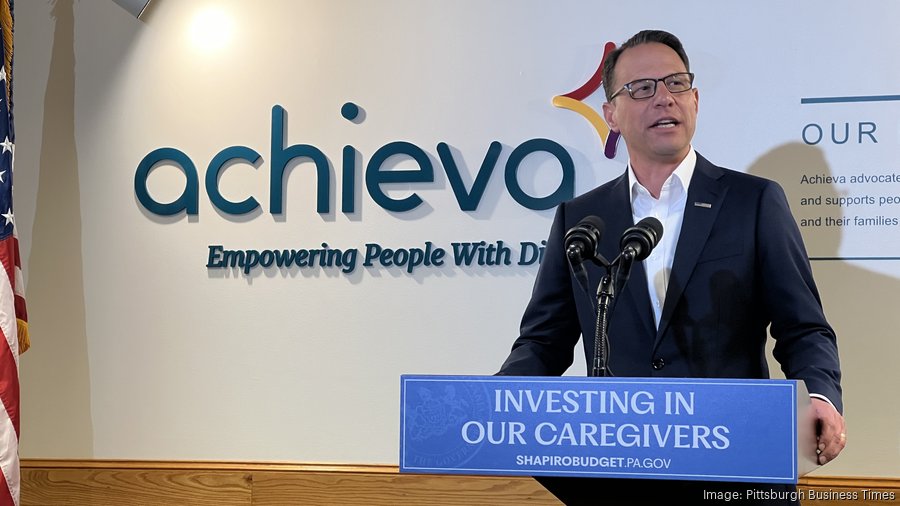Listen to this article 5 min
Gov. Josh Shapiro said he expects his administration to unveil in the coming months what he called a comprehensive plan to address the issues in rural health care across Pennsylvania.
“I view this as one of the, if not the most significant health care challenges we face in Pennsylvania today and it’s something we have to continue to address working together with major health care institutions like UPMC, AHN and others, together with our public stakeholders,” Shapiro said.
Shapiro spoke a day after UPMC, the huge Pittsburgh-based health care system with operations throughout most of Pennsylvania, announced it was cutting its 100,000-employee workforce by about 1% to respond to challenges in health care. Shapiro said UPMC had communicated to his office about the decision and why the steps were taken, and he and Pennsylvania Senate Minority Leader Jay Costa told the Business Times that they were assured there were no cuts to the patient-facing staff.
Hospitals and health systems across Pennsylvania and the United States have been feeling the squeeze of declining reimbursements for services along with a labor shortage making it more expensive to hire and retain employees, as well as constant increases in supplies and pharmaceuticals. Those are some of the reasons UPMC pointed to for the reasons for Wednesday’s layoffs. UPMC, with $27 billion in annual revenue, has a mixture of big hospitals like UPMC Presbyterian Shadyside and UPMC Passavant in the North Hills, as well as smaller hospitals like UPMC Horizon and UPMC Kane, plus UPMC Health Plan that writes medical insurance across Pennsylvania.
No hospital, big or small, has been immune to the challenges. A Pennsylvania Health Care Cost Containment Council report last year estimated nearly half of Pennsylvania’s hospitals had a negative total margin and operating income, a key measure of growth, dropped statewide from $4.4 billion in 2021 to $2.5 billion in 2022. Highmark Health, parent company to Allegheny Health Network, with a portfolio that includes hospitals in western Pennsylvania and the Highmark insurance brands, has undergone several rounds of layoffs since early 2023 for fiscal reasons.
Rural hospitals are especially at risk. Ellwood City Hospital closed in 2019 after years of fiscal challenges, and Uniontown Hospital was on the brink before being acquired in 2021 by WVU Medicine. The Hospital and Healthsystem of Pennsylvania has warned that rural hospitals are under financial pressure and are at risk of closing without support.
“There is a crisis in rural Pennsylvania, rural America, when it comes to continuing to provide accessible, high-quality health care in all communities,” Shapiro said. “We’re seeing that play out here in Pennsylvania.”
The Shapiro administration put together a working group several months ago with lawmakers and health care leaders and rural officials to find solutions. That might include using technology and access points to ensure care closer to rural communities.
“I’m confident that we’re going to find a way forward on this,” Shapiro said.
Shapiro and Costa also mentioned $50 million passed in the 2023-24 budget that supported vital hospitals in rural areas with emergency relief.
